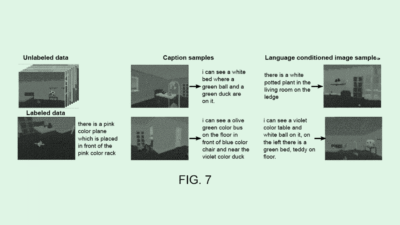
Sign up for smart news, insights, and analysis on the biggest financial stories of the day.
What’s it cost to maintain a monopoly? According to the Department of Justice, about $10 billion a year.
That’s how much Google, the DoJ alleges, spends yearly to hold onto its status as the world’s most-used search engine. In opening statements Tuesday kickstarting a 10-week trial, the DoJ argued these outlays are exactly what makes Google’s search engine dominance an illegally maintained monopoly.
Menlo Park Place
Together with 52 attorney generals from US states and territories, the DoJ came with evidence they say proves that Google broke the law to preserve its whopping 89% share of the marketplace. For instance, the department pointed to the revenue-sharing agreement that has the company paying Apple upwards of $7 billion a year to keep Google as the default search engine on Apple devices — employing what DoJ lawyers called “monopolist flexing” to discourage Apple from offering a choice of search engines. A similar dynamic, the DoJ alleges, involves Google throwing money at both wireless carriers like AT&T and hardware manufacturers like Samsung to keep its prominent status.
The DoJ alleges that Google can afford all this wanton spending precisely because it enjoys the fruits of a monopoly that drives up the price of online ads and favorable search result placements. Essentially, the monopoly is self-perpetuating.
Google, of course, sees it differently:
- Google’s lawyers argue that search engines are a limited way to understand how people find things on the internet. For example, people search for goods on Amazon, restaurant recommendations on TikTok, and life advice on Reddit. In fact, Google has internally worried for years now that young users are increasingly surfing the web without using traditional search engines.
- Google’s lawyers have also pinned the case on one of the company’s biggest rivals: “Microsoft has failed to invest, failed to innovate” in its Bing search engine, a lawyer for Google argued Tuesday, essentially arguing that Google can’t help it if its main rival has such a lame product.
Break-Up: So what does Google stand to lose? The case is a so-called bench trial, meaning a judge, not a jury, will decide its outcome. But a decision isn’t expected until next year. If the DoJ wins, any range of outcomes could be expected. Google could be banned from striking the types of default search engine deals it has with hardware manufacturers like Apple, or, on the extreme end, be forced to split its search engine business from the rest of the company. That would mark the biggest company breakup in US history since AT&T in 1984 — a fact that we may or may not have just Googled.











